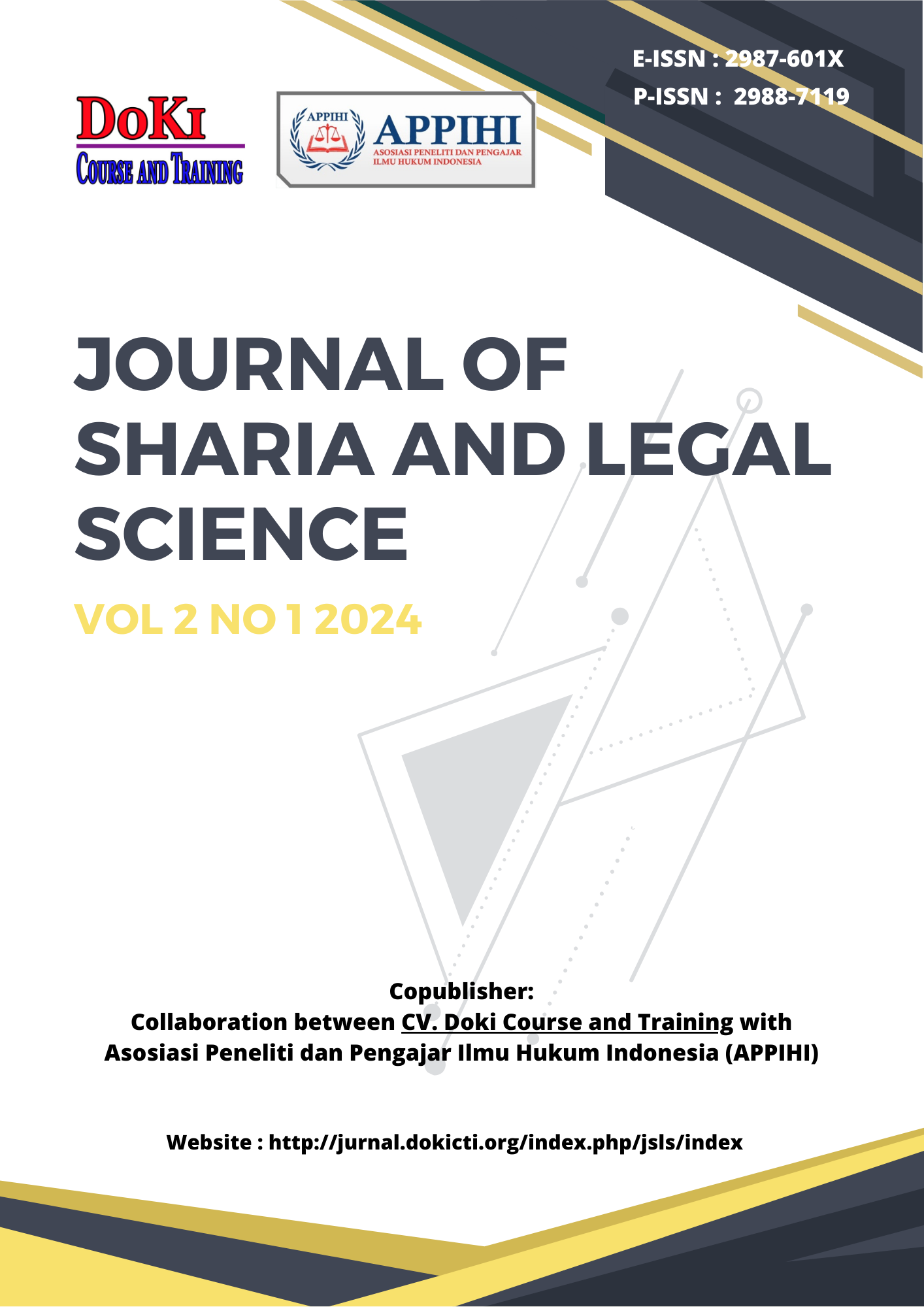Eksistensi Ajaran Sifat Melawan Hukum Materiil Dalam Undang-Undang Tindak Pidana Korupsi Pasca Putusan Mahkamah Konstitusi Nomor 003/PUU-IV/2006
DOI:
https://doi.org/10.61994/jsls.v2i1.419Keywords:
Attitude of the Supreme Court, Decision of the Constitutional Court, Nature Against Materials LawAbstract
The research problems of this thesis are how the existence of material unlawful teachings in the Corruption Crime Act Post Constitutional Court Decision Number 003/PUU-IV/2006 and how the attitude of the Supreme Court towards material unlawful teachings after the issuance of Constitutional Court Decision Number 003 /PUU-IV/2006. This study uses a normative juridical approach by prioritizing library data and legislation, and the nature of this research is analytical descriptive. The research results obtained are the existence of material unlawful teachings implied in Article 2 paragraph (1) of the Corruption Law which are declared contrary to the 1945 Constitution of the Republic of Indonesia and do not have binding legal force. On this basis, the Constitutional Court (MK) of the Republic of Indonesia in its decision Number 003/PUU-IV/2006 stated that it revoked the enactment of the doctrine of material lawlessness in the Corruption Law. As for the attitude of the Supreme Court (MA) towards the teaching of material lawlessness in the Corruption Crime Law after the issuance of the Constitutional Court decision Number 003/PUU- IV/2006, namely by paying attention to the doctrine and jurisprudence of the Supreme Court, so that the Supreme Court takes a firm stance with consideration , that the element of unlawful nature in the criminal act of corruption includes acts against the law in the formal sense as well as in the material sense and acts against the law materially as well as in positive and negative functions. Thus the Supreme Court does not fully follow and implement Constitutional Court's decision, this can be seen from the several decisions it has issued so far.
Downloads
Published
Issue
Section
License
Copyright (c) 2024 Novrizal Efendi, Ramli SA, Khalisah Hayatuddin, Abdul Latif Mahfuz

This work is licensed under a Creative Commons Attribution-NonCommercial 4.0 International License.












